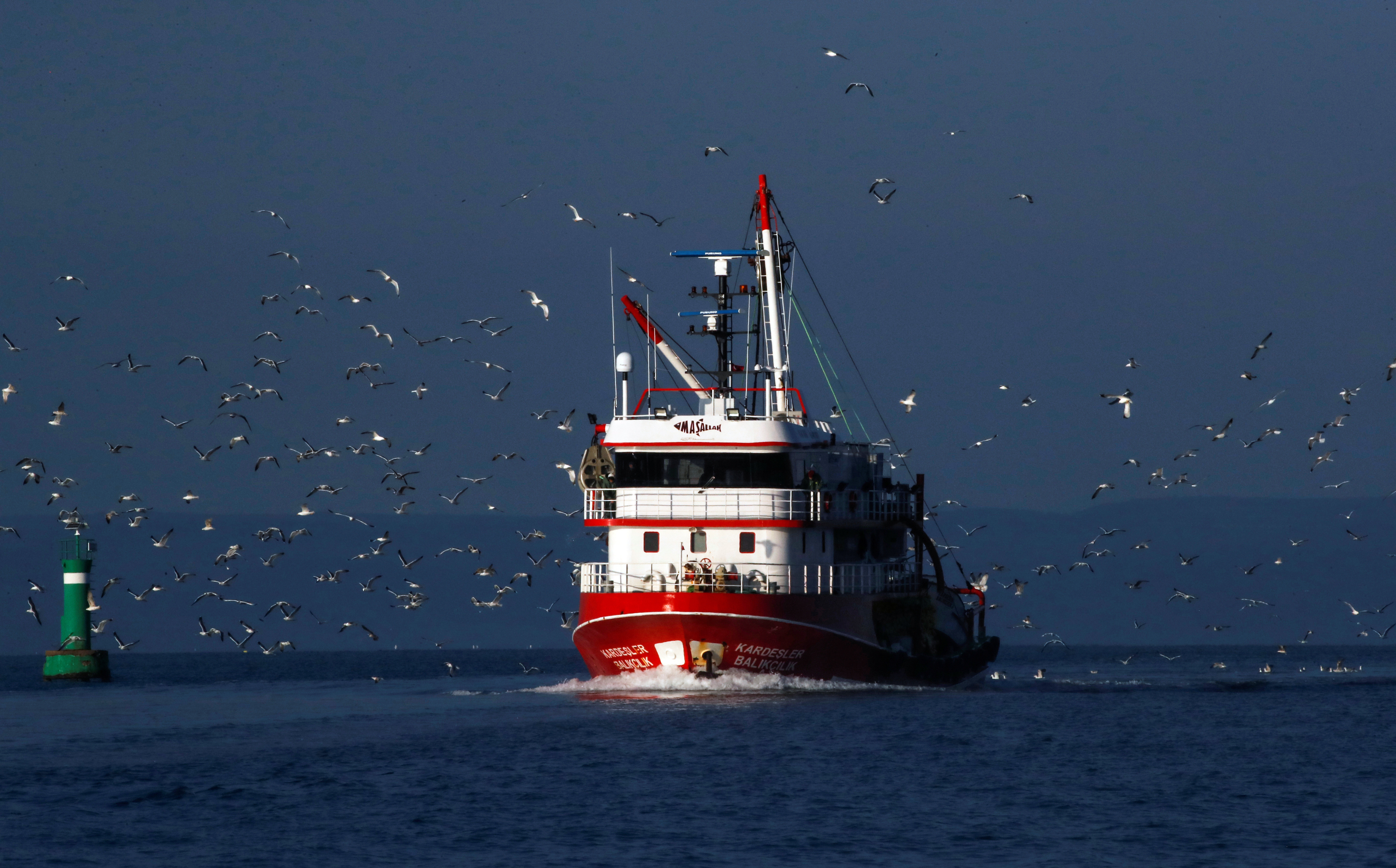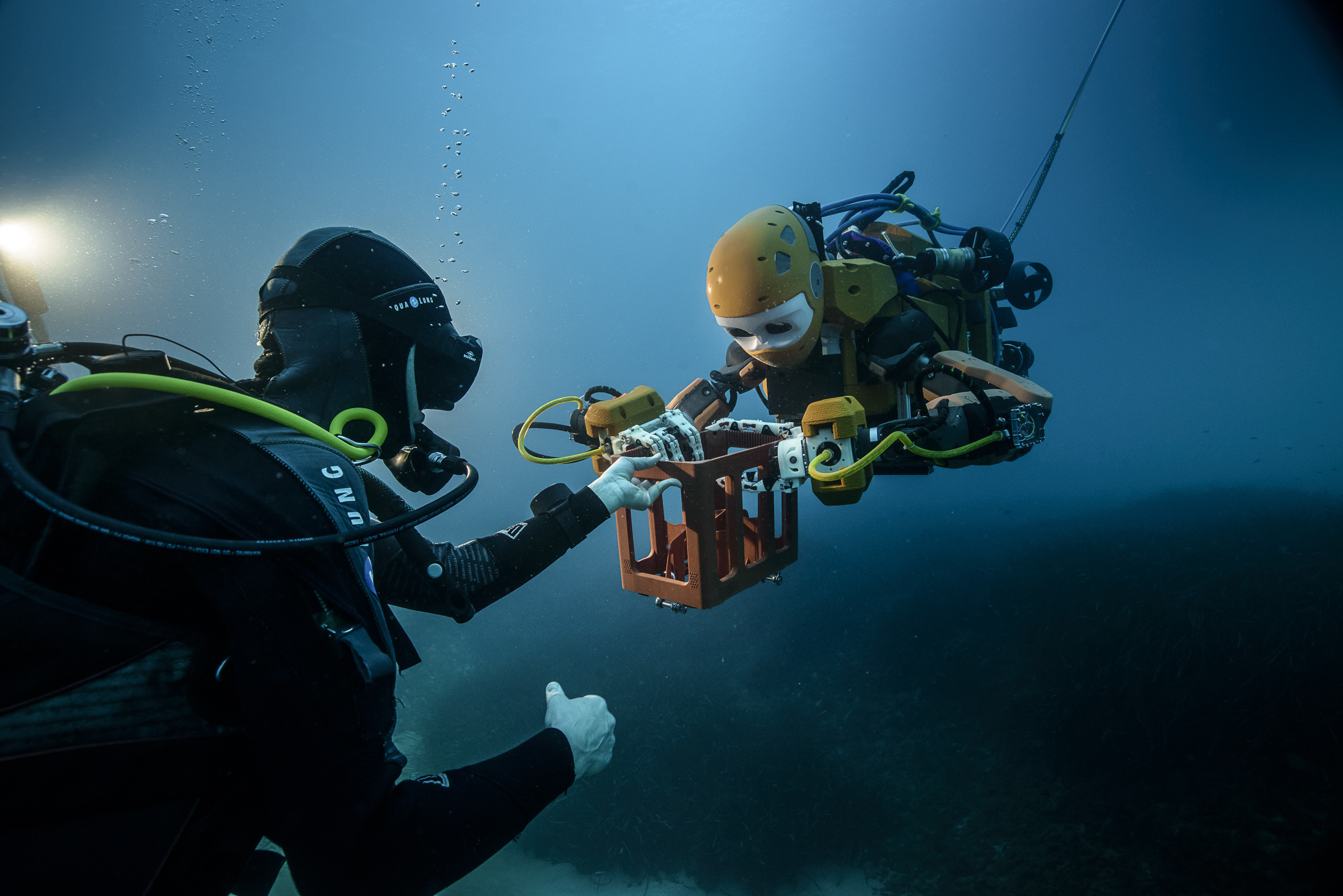
Critical minerals enable the energy transition. We must learn to use them sustainably
Critical minerals are a key asset in the transition to clean energy and decarbonization — but their extraction brings harm. Here's how we can balance that.
Douglas McCauley began his career as a fisherman in the Port of Los Angeles, but migrated to marine science and now serves as an assistant professor in the Department of Ecology, Evolution, and Marine Biolog at the University of California Santa Barbara. McCauley has a degree in political science and a degree in biology from the University of California at Berkeley and a PhD from Stanford University. He did postdoctoral research at Stanford University and UC Berkeley. McCauley is an Alfred P. Sloan Research Fellow in the Ocean Sciences.

Critical minerals are a key asset in the transition to clean energy and decarbonization — but their extraction brings harm. Here's how we can balance that.

A los países de la ONU solo les queda un año para acordar un tratado que acabe con la contaminación por plásticos. He aquí cómo crear una hoja de ruta para lidiar con los residuos.

联合国计划到2025年针对塑料污染制定一项具有法律约束力的协议,该协议将是人类和地球的一大胜利。联合国仅剩下一年的时间来实现这一目标。一项旨在到2040年终结塑料污染的国际条约可能会产生重要影响,类似于《巴黎协定》的2℃目标在应对气候危机方面的作用。一项新研究概述了解决废物增长问题的多种途径,并阐释了为什么合作是制定有效的塑料行动计划的关键。
The UN has a year to agree a treaty to end plastic pollution. Here's how to create a roadmap to address rising piles of waste and why collaboration is key.
Deep-sea mining, an industry poised to start operating in 2023, could result in the dangerous loss of biodiversity and other disruptions to the deep sea.
2050 is predicted to be a bleak milestone for the ocean - but it's not too late to avert disaster. Here are 10 actions we can take to change course.
海輸活動は、新型コロナウイルスの影響で地域によっては30%減少。ロックダウン、そして海産品の需要減少により、中国や西アフリカでは漁業活動が80%も減っています。さらに、海とビーチの観光に依存していた国々までも国境を完全に閉鎖しています。世界的に、観光事業への新型コロナウイルスの影響は、74億ドルの損失、7500万人の失業リスクにまで膨れ上がれる可能性があります。
当前已有很多报道讲述新冠病毒对航空、餐馆和体育运动等行业的破坏,这些人们都很了解了,但是新冠病毒的魔爪也同样伸向了海洋,正在影响我们的“蓝色经济”。这些正式和非正式的海洋工作、产品和服务每年产生的总价值达2.5万亿美元。如果海洋是一个国家,那么它将是世界第七大经济体。
COVID-19's impact is being felt at sea as well as on land - but the pandemic offers an opportunity to start building a fairer, more sustainable ocean economy.
Beijing is at the helm when it comes to shaping what a marine industrial revolution will mean for the health of the seas.
海洋正在发生一场工业革命。传统上,来自海洋的最宝贵商品是鳕鱼、珍珠和海绵动物等商品。全新海洋经济涉及的货物不同以往:能源、运输集装箱、金属、数据、淡化海水、DNA和石油等等。海洋工业经济的规模已经达到1.5万亿美元,其增长速度预计到2030年之前将是除此之外全球经济增速的两倍。
Parks on land host some of the world’s most famous conservation successes. The global community should now step up efforts to replicate this success - underwater.
For a healthy planet, we need healthy oceans. Yet they are under threat. The time to act on this is now.
Las siguientes 12 tecnologías oceánicas emergentes están cambiando la manera en que recolectamos alimentos, energía, minerales y datos de nuestros mares.
Rapid progress in the development of robotics, AI, low-cost sensors, satellite systems, big data and genetics are opening up whole new sectors of ocean use and research.











